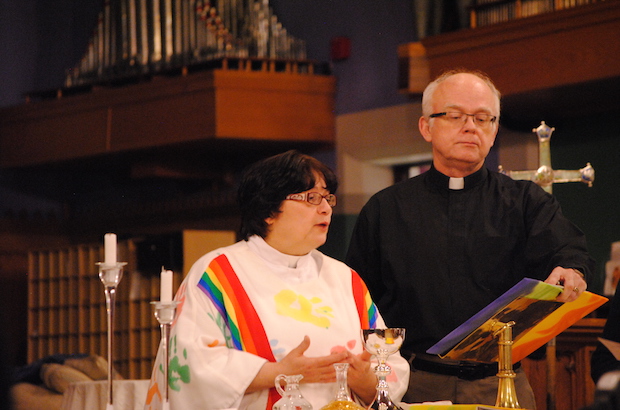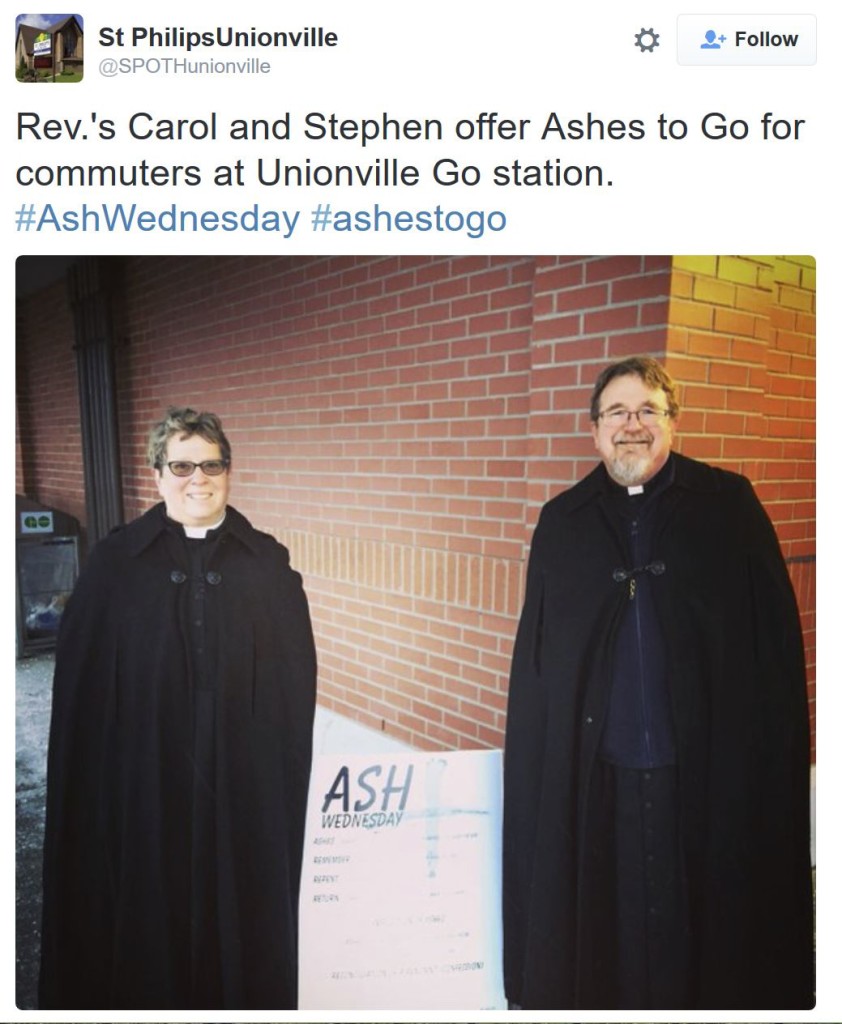It appears that a change to the Marriage Canon to allow marrying same-sex couples is unlikely to get the votes it would need from bishops at the next General Synod in July this year.
Bishops who support the change are mortified and devastated but conversations will continue – when do they not? – and “other options for honouring and fully embracing committed, faithful same-sex relationships” will be explored.
I’m quite surprised.
From here:
In our exploration of these differences it became clear to us that the draft resolution to change the Marriage Canon to accommodate the marriage of same-sex partners is not likely to pass in the Order of Bishops by the canonical requirement of a 2/3rds majority in each Order. Some of us talked of being mortified and devastated by this realisation. We feel obliged to share this with the Council of General Synod as they give consideration to the process for handling this resolution at General Synod. We have grappled with this issue for three meetings of the House, and we feel a responsibility to convey our inability to come to a common mind in discerning what the Spirit is saying to the Church. We share this out of respect for the considerable work that the Church has invested in preparing to debate this motion at General Synod. We continue to wonder whether a legislative procedure is the most helpful way of dealing with these matters.
We have been conscious that the presence of this motion has brought distress to some, and we acknowledge the deep pain that our statement will cause both within and beyond the Church. And we are all saddened that we do not seem capable of unity on this issue. Nevertheless we are committed to work toward the deeper unity for which Christ died, and we pray daily that God would mend our divisions. Our hope is not in ourselves, but in Christ, and so we are committed to staying together that we might witness the miracle of our healing.
In our deliberations, we affirmed a commitment to continuing conversations and engagement with the Report of the Commission on the Marriage Canon, and to achieving the greatest pastoral generosity possible. There is a desire among us to explore other options for honouring and fully embracing committed, faithful same-sex relationships. We will also engage Indigenous and minority cultural perspectives in our Anglican family in our understanding of marriage.


 Canada’s largest Protestant church targeted three Israeli companies with operations in Jewish settlements for economic sanctions and boycott.
Canada’s largest Protestant church targeted three Israeli companies with operations in Jewish settlements for economic sanctions and boycott. The chief executive of SodaStream International Ltd. says he has been forced to lay off hundreds of Palestinian workers after a factory was targeted by an international boycott movement and moved from the West Bank into Israel.
The chief executive of SodaStream International Ltd. says he has been forced to lay off hundreds of Palestinian workers after a factory was targeted by an international boycott movement and moved from the West Bank into Israel. On a January evening in Toronto, a dozen or so congregants filter in from the cold into the surprising mauve, green and yellow interior of a stately old church in a leafy west-end neighbourhood.
On a January evening in Toronto, a dozen or so congregants filter in from the cold into the surprising mauve, green and yellow interior of a stately old church in a leafy west-end neighbourhood.